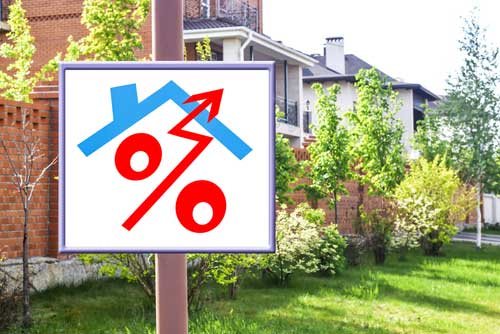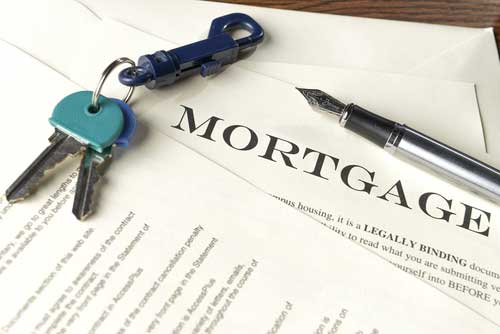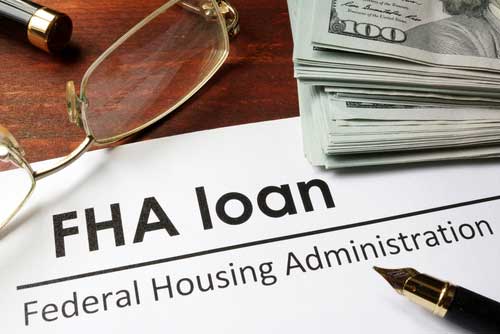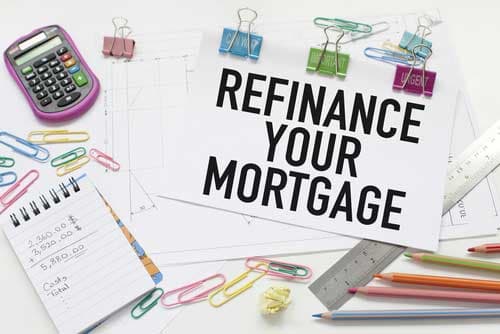Compare The Best Mortgage Rates in Washington

Compare Washington Mortgage Rates
Whether someone intends to buy a new home or refinance the mortgage on their current home for a better deal, it's crucial that they get the best possible mortgage rates. That's where MyRatePlan can make a world of difference in pulling up the best mortgage rates in Washington. We have all the info and tools a home buyer needs to research and compare mortgage rates, which will help them get the lowest interest rate and avoid paying any more than necessary for a home.

How To Find The Best Home Loan Rates In Washington
If you are wanting to buy a new home in Washington, chances are good that you will need a loan in order to finance the purchase of it. Even if the cost of a home is low, it would still be almost impossible to purchase it in cash. What is needed in order to get a mortgage and what influences what your interest rate will be?
There are many steps to take in order to make sure you get the best interest rate available on the market when applying for a mortgage loan. After you have found the home of your dreams, it is possible that your real estate agent will recommend certain lenders in which they have worked with before. You should not fully rely on these recommendations alone. Remember that your real estate agent's main objective is to close the deal as quickly as possible. Securing a home loan can be a complicated procedure, especially if it's your first time. Getting the process done quickly should not be your top priority.
Your priority should be to get the best rate possible on a loan. It does not matter whether you want to go with a local lender or a well-known company, be certain you can apply to get the best one. MyRatePlan's in-depth mortgage rate tool will be able to assist you in finding the best home loan rates in Washington. Additionally, making certain that your credit score is as high as it can possibly be will deem what interest rates you can qualify for.

Different Types of Mortgages on the Market in Washington
Since different types of buyers have different mortgage needs, there are many different home loan products out there. Two important mortgage types every borrower needs to understand are fixed-rate mortgages and variable mortgages.
When a home loan has one interest rate throughout its entire term, no matter the length, then it's a fixed-rate mortgage, which got that name because the interest rate is fixed in place. Since the interest rate never changes, the monthly payment amount doesn't either, and the borrower will always know what their monthly payment is going to be. This is true even if they have a 30-day mortgage. Fixed-rate mortgages tend to be a smart, low-risk option, because the borrower doesn't need to worry about their interest rate increasing and suddenly having a higher home payment every month as a result.
The other option is an adjustable-rate mortgage (ARM) in Washington. As the name suggests, this is a mortgage where the interest rate adjusts on occasion. A popular variation on this is a hybrid ARM, which essentially combines the fixed-rate mortgage with the ARM. For a predetermined initial period of time, the hybrid ARM operates as a fixed-rate mortgage with one interest rate. After that initial period ends, it switches to an ARM with an interest rate that changes on a specific schedule. An example would be a 5/1 ARM home loan. That five indicates that the home loan has one interest rate for the first five years, and then it switches to an adjustable rate. That one indicates that the interest rate adjusts every one year after the initial period. The obvious drawback with ARMs and hybrid ARMs is that the borrower could end up paying more if interest rates go up.

FHA Home Loans Available in Washington
Besides fixed-rate mortgages and ARMs, there are also other categorizations that can apply to home loans, including whether the loan is backed by the government or not. Traditional mortgages are only made through the lender and don't involve the government, but with some mortgages, the federal government either guarantees or insures the loan. Examples include FHA loans, USDA loans and VA loans.
FHA loans get their name because they are backed by the mortgage insurance program of the Federal Housing Administration, an organization that's controlled by the Department of Housing and Urban Development, or HUD for short. One benefit of FHA loans in Washington is that it's not just first-time homebuyers who are able to apply, as they're a valid loan option for any borrower. For the lender, the advantage with these loans is that the government is providing insurance, and this will cover what the lender would lose in the event of a borrower default. Borrowers benefit by not needing as large a down payment, as down payments can be just 3.5 percent with FHA loans. However, the borrower needs to cover the cost of mortgage insurance, meaning they have bigger monthly payments.

Refinancing Mortgages in Washington
In Washington, refinancing a mortgage loan is like applying for a new one. The end result of this is that one may have to pay closing costs or any other fees required. This is, however, done when the loan is approved. If one seeks to refinance for the sake of enjoying lower rates, they should carefully consider the consequences of refinancing. The extra costs may offset some savings that one sees from refinancing. The exception to this rule is when one is refinancing from an adjustable rate loan to a fixed-rate loan. The reasoning is that the rates are more likely to go up in the future rather than going down.
Appearing as low-risk is the best strategy for those looking to refinance their mortgage. This can be achieved by keeping one's credit score above 700, keeping one's debt-to-income ratio low, and applying for a fixed-rate loan facility.
Compare The Best Mortgage Rates in
- Seattle, WA
- Spokane, WA
- Tacoma, WA
- Vancouver, WA
- Bellevue, WA
- Olympia, WA
- Evans, WA
- Coulee City, WA
- Beverly, WA
- Grand Coulee, WA
- Gifford, WA
- Tenino, WA
- Moxee, WA
- Neilton, WA
- Battle Ground, WA
- Union, WA
- Roy, WA
- Bow, WA
- Lakebay, WA
- Pacific Beach, WA
- Amanda Park, WA
- Cathlamet, WA
- Tahuya, WA
- Lynden, WA
- Loomis, WA
- Colbert, WA
- Malott, WA
- Belfair, WA
- Snoqualmie Pass, WA
- Loon Lake, WA
- Newport, WA
- Nordland, WA
- Royal City, WA
- Port Ludlow, WA
- Shaw Island, WA
- Sultan, WA
- Keyport, WA
- Nooksack, WA
- Riverside, WA
- Fox Island, WA
- Saint John, WA
- Connell, WA
- Lyman, WA
- Mohler, WA
- Orcas, WA
- Port Gamble, WA
- Burton, WA
- Brewster, WA
- Peshastin, WA
- Newman Lake, WA
- Oakesdale, WA
- Veradale, WA
- Touchet, WA
- College Place, WA
- Kalama, WA
- Mountlake Terrace, WA
- Curtis, WA
- Bothell, WA
- Addy, WA
- Salkum, WA
- Clinton, WA
- Danville, WA
- Twisp, WA
- South Colby, WA
- Cowiche, WA
- Allyn, WA
- Yacolt, WA
- Seaview, WA
- North Bonneville, WA
- Amboy, WA
- Moses Lake, WA
- Greenbank, WA
- Port Townsend, WA
- Brownstown, WA
- Orient, WA
- Rosburg, WA
- Cle Elum, WA
- Waldron, WA
- Granger, WA
- Maple Valley, WA
- Kingston, WA
- Aberdeen, WA
- Ashford, WA
- Joyce, WA
- Preston, WA
- Kent, WA
- Napavine, WA
- Shelton, WA
- Grayland, WA
- Stanwood, WA
- Usk, WA
- Bainbridge Island, WA
- Marblemount, WA
- Graham, WA
- Vantage, WA
- Lake Stevens, WA
- Grays River, WA
- Valleyford, WA
- Chehalis, WA
- La Push, WA


 Menu
Menu